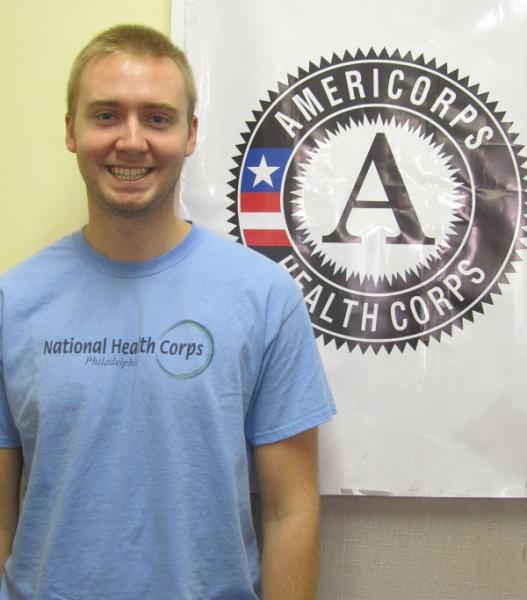It Takes a Team to Treat a Patient
The delivery of healthcare has changed dramatically in recent years. A lot of providers focus on their individual departments and outcomes rather than work to collaborate with their peers. The Stephen and Sandra Sheller 11th Street Family Health Services of Drexel University employs a different, more unique model. As a Health and Benefits Advocate I am a member of the Social Work Department, but I collaborate with staff from behavioral health, dental services, primary care, as well as health education and outreach. The integrated, interdisciplinary model of the 11th Street family health clinic allows the full team of healthcare professionals to use their individual skills within a collaborative model, thus better meeting the patients’ myriad health needs. Models such as the one at 11th Street are sweeping the nation and I believe they hold the answers to the questions about how improve healthcare delivery that is afflicting our nation today.
The 11th Street Family Health Services was started in 1996 to address the health concerns of the medically underserved residents of Philadelphia’s 11th Street Corridor, an area known for its many public housing communities. The comprehensive, nurse-managed federally qualified health center was an innovative model from the beginning as it was formed with the community’s needs at the forefront. Overtime, this health center has come to provide an array of services with a trauma-informed lens that effectively meets patients where they are in life and providing culturally competent and socially aware healthcare services.
The trauma-informed, patient-centered lens is the common belief among all staff members. When patients come to the clinic, they primarily come for physical health concerns and do not think that their other needs, like applying for food stamps or heat assistance, could be addressed at the same visit. However, when they leave, many patients have received more attention than expected. The comprehensive care we provide for patients is absolutely necessary since one cannot address just biological health without also attending to the social well-being of the patient, including having stable housing with running water, food in the kitchen and quality air to breathe in and outside the home.
Ms. Liberty (name changed to protect identify) first came to my office because she had concerns about her insurance being deactivated. Ms. Liberty was recently discharged from a week-long hospital stay due to poorly controlled type II diabetes. Upon returning home, she found a letter stating her insurance was going to be cut-off but Ms. Liberty did not know why. I assessed the situation and we called the Philadelphia Department of Public Welfare to determine what steps we needed to take in order to maintain her insurance coverage. After talking to a representative, we learned that we needed a medical assessment form completed. I met with the nurse practitioner to complete the form and her insurance coverage was maintained. While talking with her, she told me her electric was being shut-off during the month of January. I worked with her and the social worker to complete an energy assistance application so that her electric would continue to be on during the winter months to heat her home. I referred Ms. Liberty to a behavioral health consultant as well to address ways to manage stress in her daily life. She also plans to attend the diabetes self-management classes run by the Nutritionist and Clinical Care Manager at the clinic.
My experience being a part of this interprofessional, multidisciplinary team has dramatically changed how I want to practice medicine in the future. I cannot imagine working in any group that does not include other health professionals, including social workers and patient navigators, since there is no way a doctor alone can meet all the needs of a patient. Interprofessional teamwork in healthcare is becoming a necessity and learning how to communicate with other professionals on the care of patients has been an invaluable experience. As health care delivery changes with the passage of the Affordable Care Act and provider reimbursement reform, new ways to deliver and pay for care are necessary to keep improving the health of our nation. My service at the 11th Street Family Health Services has shown me a new way to deliver care and how to be a member on an interprofessional healthcare team.


This post was written by PHC member Dan Wells.
Dan serves with the Family Practice & Counseling Network - Stephen and Sandra Sheller 11th Street Family Health Services center as a Health & Benefits Advocate.